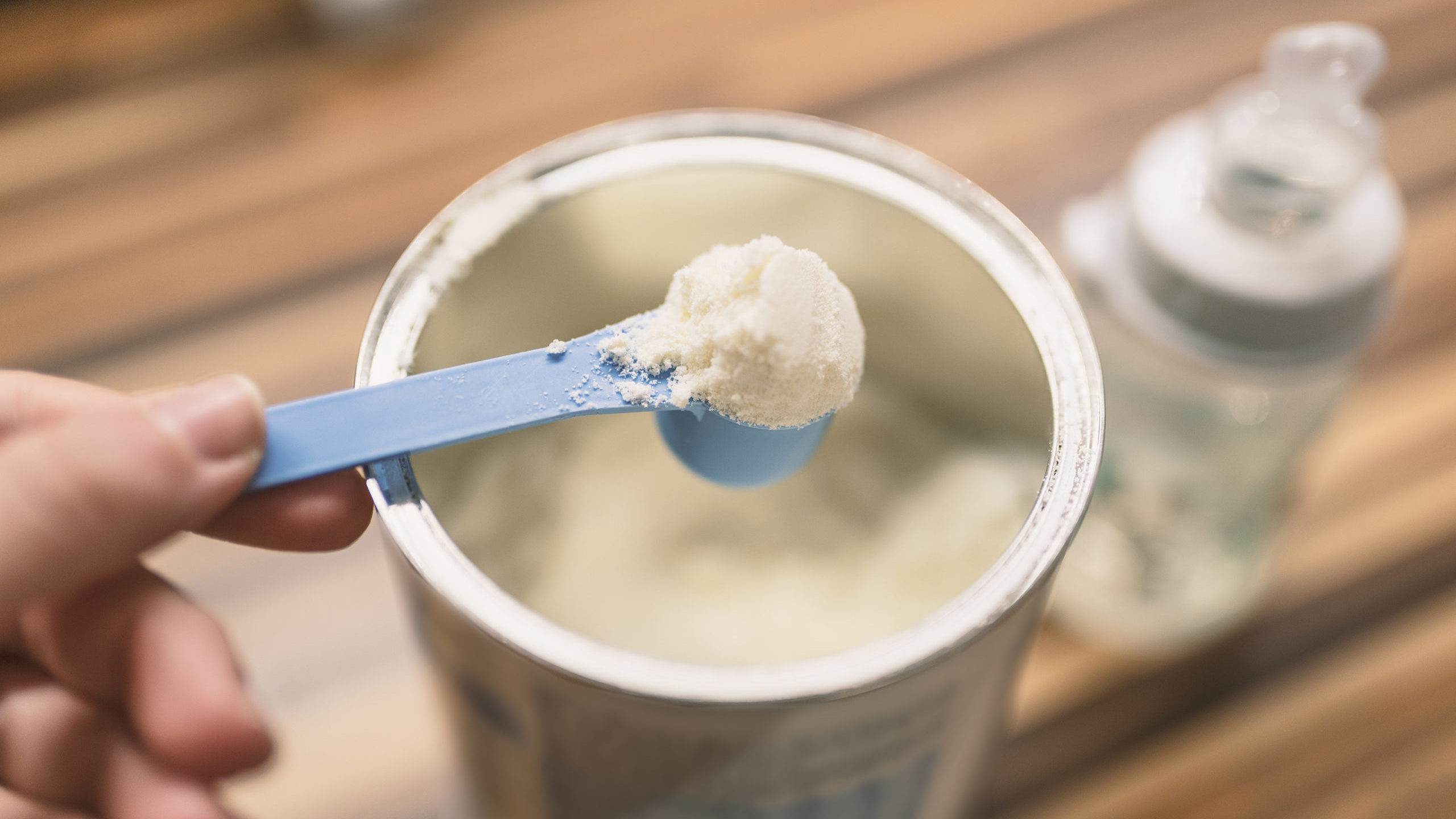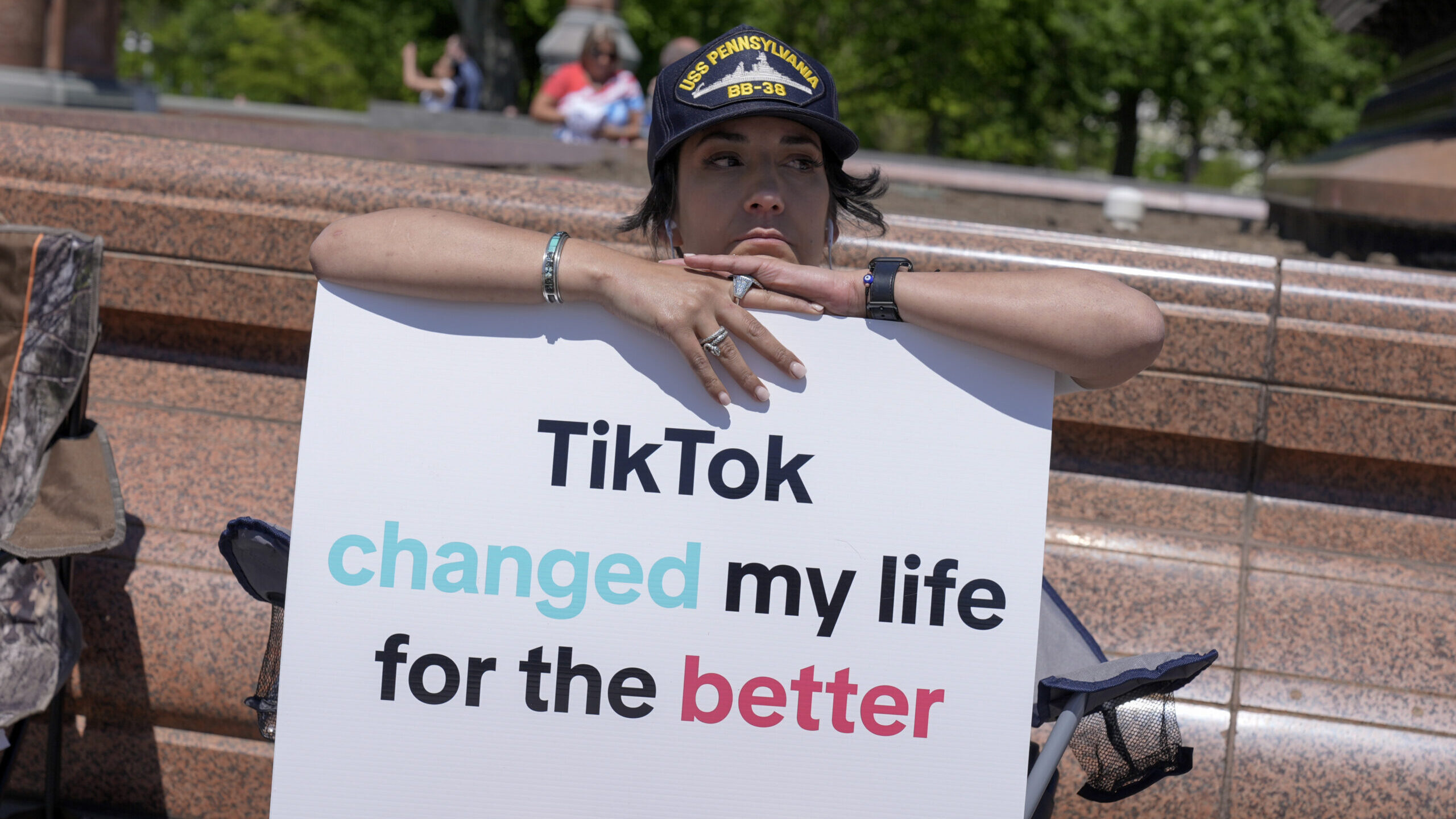Health experts call for end to “exploitative baby formula marketing tactics”
Feb 8, 2023, 12:30 PM | Updated: 12:31 pm

FILE: The report from health experts at institutions around the world says that commercial milk formula sales tactics violate the international code on breastfeeding marketing and calls for stricter government regulation of irresponsible baby formula marketing and industry interference. (Adobe Stock via CNN)
(Adobe Stock via CNN)
(CNN) — Less than half of infants around the world are breastfed as recommended. And baby formula is in high demand despite failing to offer the same health and developmental benefits as breast milk, experts say. According to a new report, misleading claims and political influence are to blame.
The report from global health experts says that commercial milk formula sales tactics violate the international code on breastfeeding marketing. It calls for stricter government regulation of irresponsible baby formula marketing. It also calls for widespread industry interference.
The three-paper series, published Tuesday in the medical journal The Lancet, extensively outlines “predatory tactics” in the formula milk marketing industry. The research also highlights the need for stronger maternity protections, such as universal paid maternity leave, to support breastfeeding for all women.
“The sale of commercial milk formula is a multi-billion-dollar industry which uses political lobbying alongside a sophisticated and highly effective marketing playbook to turn the care and concern of parents and caregivers into a business opportunity,” Dr. Nigel Rollins, a scientist with the World Health Organization and co-author of the series, said in a news release. “It is time for this to end. Women should be empowered to make choices about infant feeding which are informed by accurate information free from industry influence.”
The Utah Angle: Shortage of baby formula continues to worry parents
CNN has reached out to the Infant Nutrition Council of America, a trade group representing formula marketers, for comment.
The report comes as more children than ever are being fed formula and as climate, political and economic crises repeatedly threaten global supply. The US is still recovering from a monthslong shortage of infant formula that stressed families and may spark sweeping changes at the US Food and Drug Administration. Other countries have faced similar supply chain disruptions caused by events like flooding South Africa, war in Ukraine and the Covid-19 pandemic — events that companies capitalized on to garner more donations and customers, according to the report.
The authors acknowledge that formula is necessary for some women who choose not to or who can’t breastfeed and note that criticisms of the commercial milk formula industry should be not be interpreted as criticism of women.
Misleading, exploitative baby formula marketing
Research has shown that breastfeeding promotes infant brain development, prevents malnutrition and sudden infant death syndrome, and lowers the risk of infectious diseases, chronic diseases and leukemia later in life. For mothers, breastfeeding helps lose pregnancy weight and lowers the risk of type 2 diabetes, cardiovascular disease, and breast and ovarian cancer.
Universal breastfeeding would save an estimated 823,000 infant and 98,000 maternal lives annually, according to research published in The Lancet and Health Policy and Planning.
The authors of the new report note that “perceived pressure, or inability, to breastfeed — especially if it is at odds with a mother’s wishes — can have a detrimental effect on mental health, and systems should be in place to fully support all mothers in their choices.” They emphasize, however, that women make infant feeding decisions based on the information they receive, and they say this information should be accurate and free from commercial influence.
Despite evidence of its benefits, global breastfeeding rates have increased very little over the past two decades while baby formula sales have nearly doubled, reaching $55.6 billion in 2019, amid misleading marketing strategies that the authors say undermine breastfeeding.
“One of the factors, which is a main focus of the series, is the very misleading and exploitative marketing from infant formula companies that use messaging about the benefits of their products without almost any scientific basis whatsoever, essentially sending a message that infant formulas are similar to, if not even better than, breastfeeding for the health and well-being of the babies,” said Rafael Perez-Escamilla, a professor at the Yale School of Public Health and a co-author of the report.
The report also explains how companies exploit parental anxieties about their children’s health and development in the vulnerable newborn period. Companies often suggest that common infant adaptations such as fussiness, colic or short nighttime sleep duration are signs of breastfeeding issues that formula can fix.
“Formula companies use these behaviors and present them as problematic and basically lead people towards using products as the solution to problems that may, in fact, not be problems at all but part of normal human developmental behavior,” said co-author Cecilia Tomori, an associate professor at the Johns Hopkins University School of Nursing.
Experts emphasize that with appropriate education and support, such concerns can be managed appropriately with breastfeeding.
Dr. Susan Crowe, a Stanford University School of Medicine ob/gyn and lactation specialist who was not involved with the report, says she tells her patients that “the purpose of these ads is to sell formula” so they are “aware that these companies are there primarily to make a profit. Sometimes just letting them know that they’ve been exposed to advertising is helpful.”
These misleading and unsubstantiated scientific claims, experts say, violate the International Code of Marketing of Breast-Milk Substitutes, a landmark agreement put into place in 1981 that aims to regulate unethical marketing practices to ensure that mothers are not discouraged from breastfeeding and that substitutes are used safely if needed.
Unlike most World Health Organization member countries, the United States does not legally enforce any provisions of the code.
“The US does not regulate [baby formula] marketing at all. Everything goes in terms of the marketing of infantry and formulas,” said Perez-Escamilla, who urges the FDA and Congress to intervene.
The report also says that baby formula companies’ influence extends far beyond marketing, including lobbying against vital breastfeeding support measures, incentivizing physicians to recommend their products to new mothers and funding research that supports their marketing agenda.
One study by WHO and the United Nations Children’s Foundation surveyed 8,500 women worldwide and found that more than a third said a health care worker recommended a specific brand of formula to them.
“It is, as a whole, a very powerful system of lobbying, of capturing scientists, of capturing health care providers and, at the end of the day, capturing families themselves with their products by really exploiting the fears of families and parents during a very vulnerable psychoemotional time,” Perez-Escamilla said.
A call for society-wide changes to baby formula marketing
The study authors call for actions across governments, workplaces and health care to support women who want to breastfeed.
The report calls for extending paid maternity leave to align with the recommended six-month duration of exclusive breastfeeding. WHO and the American Academy of Pediatrics recommend exclusive breastfeeding until 6 months and continued support for breastfeeding to age 2 or longer.
Paid maternity leave has been shown to increase breastfeeding exclusivity and duration. However, according to the new report, more than half a billion working women globally lack adequate maternity protection. Most of them are lower-income and women of color who are forced to go back to work out of financial necessity.
The report’s authors say that formula milk marketing “exploits the lack of support for breastfeeding by governments and society” by framing breastfeeding as a “moralistic judgment, while presenting milk formula as a convenient and empowering solution for working mothers.”
The US is the only high-income country without federally mandated paid maternity leave. Although more than 80% of mothers in the US start off breastfeeding, less than a quarter exclusively breastfeed their baby at 6 months, according to the US Centers for Disease Control and Prevention.
In 2011, the US Surgeon General’s Call to Action to Support Breastfeeding identified the lack of paid maternity leave as a significant barrier to breastfeeding and argued that “paid leave is necessary to reduce the differential effect of employment on breastfeeding among disadvantaged racial, ethnic, and economic groups, which in turn would allow disadvantaged populations to benefit from the health effects of breastfeeding.”
The report’s authors also highlight the need for expansion in health professional training on breastfeeding. Namely, offering skilled counseling before and after birth to all mothers who wish to breastfeed. This includes guidance and support for mothers who are unable to breastfeed due to limited milk production or medical reasons, such as active HIV infection.
“Initiation of breastfeeding and lactation support is tremendously helpful so that people can understand normal volumes and intervene with supplementation only when medically necessary,” Crowe said.
The authors note the importance of supporting a woman’s choice regarding breastfeeding and emphasize the need for systemic policies free from unregulated baby formula marketing, lobbying and influence to allow families to make informed decisions on infant feeding.
“We are asking for social support, structural social support from governments and systems to help people achieve their breastfeeding goals,” Tomori said. “We want to make sure that they understand that it is not up to individual women and mothers to do breastfeeding. That it’s actually their right, and it is part of health as a human right that they have all the support and the enabling environments that they deserve.”
The-CNN-Wire
™ & © 2023 Cable News Network, Inc., a Warner Bros. Discovery Company. All rights reserved.













